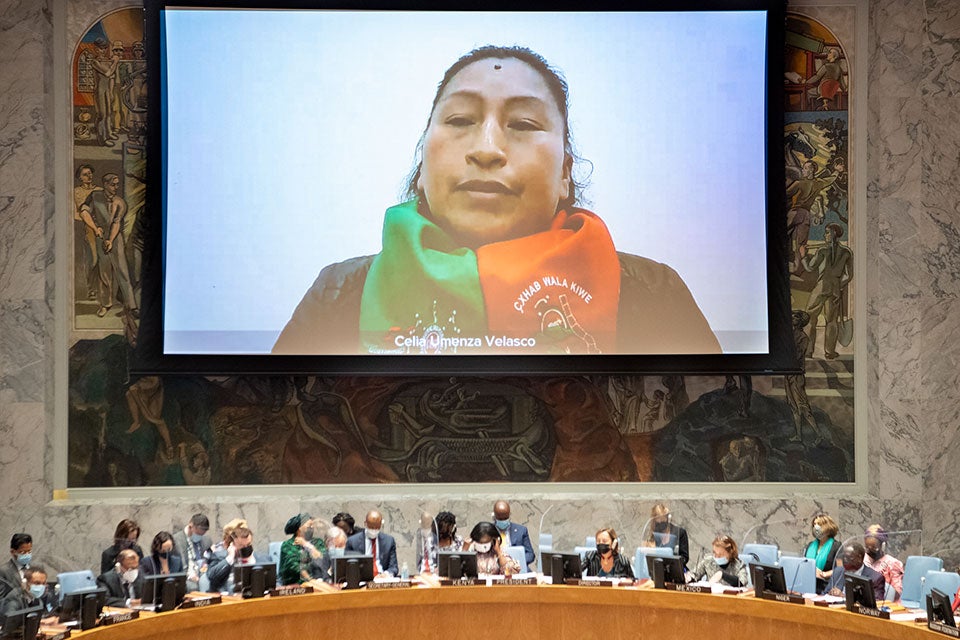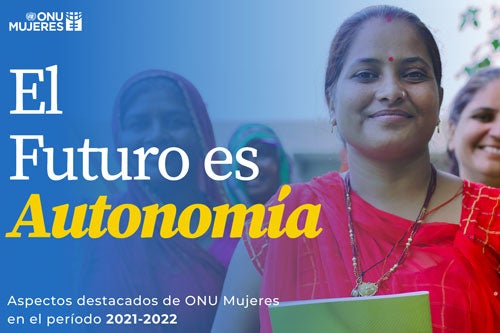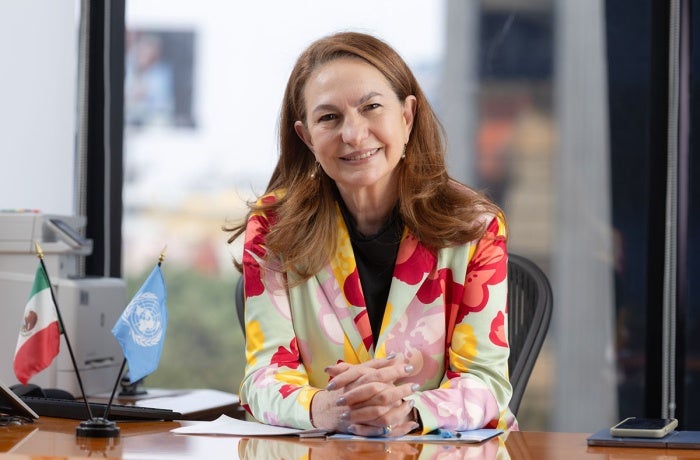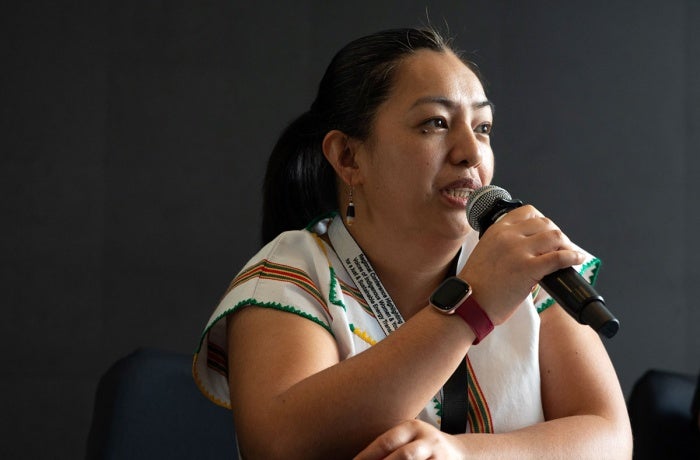Desde mi perspectiva: "Nuestros territorios son nuestro futuro".
Celia Umenza Velasco es líder del grupo indígena más grande de Colombia, el pueblo nasa, que habita en la región norte del Cauca: una de las zonas más afectadas por el conflicto armado. Umenza Velasco realizó una exposición ante el Consejo de Seguridad de las Naciones Unidas en el reciente debate abierto sobre las mujeres, la paz y la seguridad.


I have been a defender of human rights and the environment since I can remember, since I was young.
As Indigenous people, we face a variety of problems relating to the environment and the land. The main ones are state policy, drug trafficking, paramilitarism, and armed actors. Indigenous peoples have experienced historical persecution, including displacements, massacres, and assassinations. There are mining concessions within our territories [1].
We have fought to survive and fought for our culture not to come to an end. I believe that our territories are our future.
Insecurity is the biggest barrier that we face as women and as an organization in Indigenous, Afro-descendant, and campesino territories. Because of my activism, I have experienced retaliation. I have been blocked from doing my work, I’ve been shot at. The first time that I received threats for my activism was in 2005, and the most recent time was in January 2019.
The COVID-19 pandemic affected us because it restricted all movement within the territory and outside of it. Despite the fact that we were locked within the territories, the violence against us did not stop. Women lost children and partners. Today, they are carrying the whole family’s burden.
Women experienced gender-based violence during the pandemic. The armed actors were strengthened during the pandemic and women experienced displacement and assassinations.
Indigenous women, Afro-descendant women, and campesinas have big roles in their cultures and families. We say that women are the symbol of the land because we are life, and the land is life.
To end violence against women and girls, we must give space to “territorial women” [2] so that they can implement peace. To protect and defend land and environmental resources in Colombia, we rely on the cultural aspect of our worldview. It is a fundamental pillar for the protection of the territory and for the protection of human rights defenders. The Indigenous Guard [3] is also very important to defend our land and resources. Indigenous women and Indigenous boys and girls are represented by the Indigenous Guard.
Our culture must be strengthened, and the Indigenous Guard must be strengthened as a body for peace and as defenders of human rights, land rights, and the environment.
For us, a peaceful Colombia is when we live in peace, in tranquility, and with the harmony that we have always hoped for.”
Celia Umenza Velasco, 53, is the Legal Coordinator for the Indigenous Reservation of Tacueyó and member of the Association of Indigenous Councils of North Cauca (ACIN). She is a member of Cxhab Wala Kiwe, which means “Great People’s Territory” in the Nasa Yuwe language.









